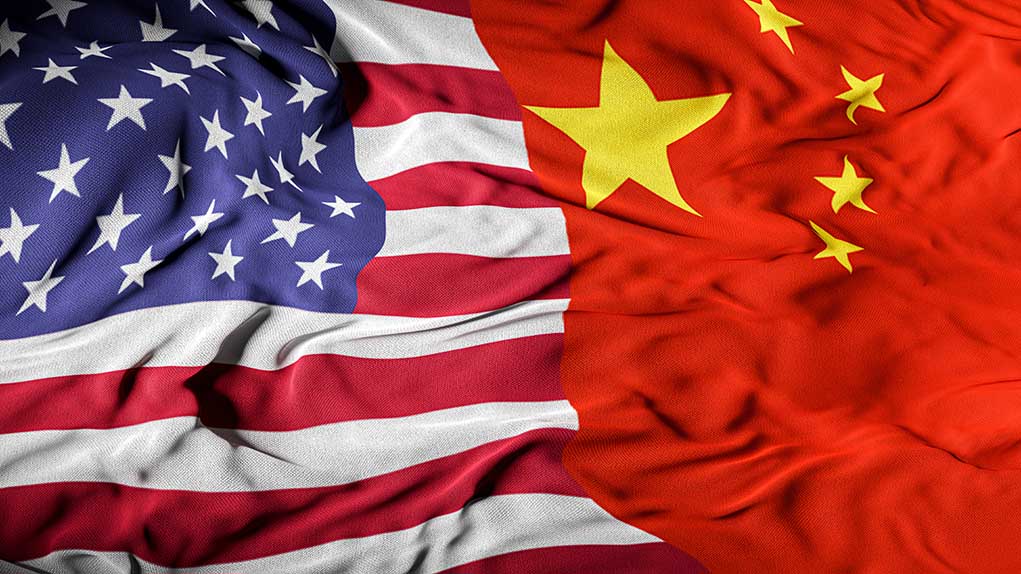
China has issued a stark warning to nations considering Trump’s trade deals, threatening retaliation against any country that makes agreements “at the expense of China’s interests.”
Key Takeaways
- China has threatened to take “countermeasures” against countries that negotiate trade deals with the US that harm Chinese interests
- The US has imposed tariffs up to 145% on Chinese imports while pausing tariffs for most other countries for 90 days
- Over 70 countries have reportedly begun negotiations with the US, with approximately 130 nations interested in new trade deals
- China has already retaliated with 125% tariffs on US imports and warns it will continue fighting in this escalating trade war
- Global financial markets face significant disruption as the US-China trade war intensifies
China’s Message of Defiance
China’s Commerce Ministry has taken a firm stance against countries potentially aligning with the United States in trade negotiations that could disadvantage Beijing. In an unambiguous statement, Chinese officials declared they would implement reciprocal countermeasures against nations that participate in agreements detrimental to China’s economic interests. The warning comes as the Trump administration engages in tariff negotiations with multiple countries including Japan, South Korea, and India, while simultaneously maintaining heavy trade restrictions on Chinese goods.
The Chinese government emphasized its resolve with a pointed message: “Appeasement cannot bring peace, and compromise cannot earn one respect.” This hardline position demonstrates Beijing’s determination to protect its economic position even as the US attempts to isolate China through bilateral agreements with other nations. The Commerce Ministry’s statement leaves little room for interpretation regarding China’s willingness to engage in economic retaliation against countries that side with Washington.
*CHINA WARNS COUNTRIES NOT TO CUT TRADE DEALS WITH U.S. THAT MAY HARM ITS INTERESTShttps://t.co/bzudQkp5UX
— Investing.com (@Investingcom) April 21, 2025
Escalating Tariff War
The trade conflict has intensified significantly with the US imposing tariffs as high as 145% on Chinese imports. In response, China has implemented retaliatory tariffs of 125% on American goods. While maintaining these harsh measures against China, the Trump administration has paused tariffs for most other countries for 90 days, creating a strategic opening for negotiations. This approach aims to pressure countries into forming a united front against China in exchange for favorable trade terms with the United States.
US Treasury Secretary Scott Bessent has encouraged countries to “approach China as a group,” signaling the administration’s desire to build an international coalition against Beijing’s trade practices. Meanwhile, China has labeled the US tariffs as “economic bullying” while indicating openness to talks, though no meetings have been scheduled. This standoff has created significant volatility in global markets as investors worry about the potential economic fallout from a prolonged trade war between the world’s two largest economies.
Global Diplomatic Maneuvering
As the US courts international partners for its trade strategy, China is not standing idle. President Xi Jinping has been actively engaging with Vietnam, Malaysia, Japan, South Korea, and the European Union to promote what Beijing describes as “an open and cooperative international environment.” This diplomatic outreach appears designed to counter US efforts to isolate China economically.
The global implications of this trade conflict are substantial, with reports indicating over 70 countries have initiated negotiations with the US following the tariff announcements. Trump administration officials suggest that approximately 130 nations have expressed interest in new trade deals with the United States. Vice President JD Vance is expected to meet with India’s Prime Minister Narendra Modi, highlighting the administration’s focus on developing strategic trade relationships with key regional powers that could potentially limit their economic ties with China.
While President Trump maintains that the tariffs will boost American-made goods consumption and investments, critics argue that the policy complicates the return of manufacturing to the United States and risks further fragmenting the global economy. The Chinese Ministry of Commerce has criticized the US for abusing tariffs “under the guise of reciprocity” and forcing countries into reciprocal tariff negotiations that Beijing views as unfairly targeted against Chinese interests.




